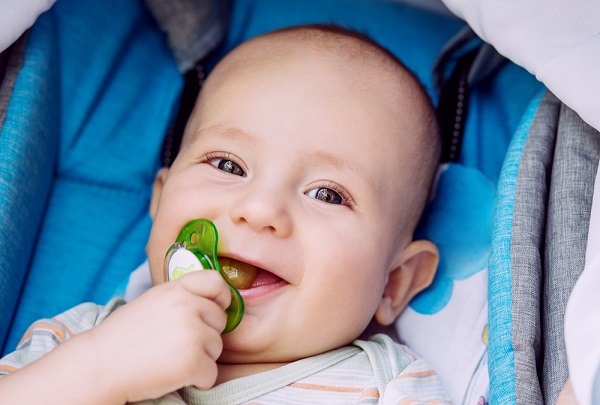There are some advantages to allowing babies to suck their thumbs rather than a pacifier. But it's fair to say that both can have their problems, particularly when it comes to giving up!
Sucking is a natural reflex that babies use to calm and settle themselves. Your baby may have started sucking her thumb even before she was born. There have been pictures of babies sucking their thumbs in the womb (uterus).
The main advantage of thumb-sucking is that your baby's thumb is always there. It won't fall on the floor. It doesn't need to be tied to her clothing by strings that can get caught on things. Best of all, your baby's thumb is under her own control.
Your child will probably give up thumb-sucking by the time she's three years old or four years old. Around this age, she would have learnt other ways to calm and comfort herself. However, she may continue to suck her thumb at night or at stressful moments for years beyond that.
On the other hand, if your baby cries a lot and wants to suck something, a pacifier can be a quick, effective soother. It'll give you a much-needed break too.
However, if you're breastfeeding, it's best to wait until your baby is at least a month old before giving her the pacifier or soother. Some experts believe that using a pacifier can confuse a breastfed baby. This may result in her not latching on to your breast properly.

Other experts think that sucking on a pacifier reduces the amount of time your baby could spend on your breast. And that if your breasts aren't stimulated enough, your milk supply could go down.
Also, there's a link between frequent pacifier use and ear infections. If you have to give your baby a pacifier or soother, limit to giving it only to settle herself to sleep. This way you can reduce the risk of ear infections.
In fact, both pacifiers and thumb-sucking can affect how your baby's teeth grow and develop. Some experts also claim that pacifiers interfere with speech development.
It's believed that using a pacifier or soother can help to guard against sudden infant death syndrome (SIDS), or cot death. However, there's no need to encourage your baby to take a pacifier if she doesn't want one. There are other, more effective steps you can take to protect your baby from SIDS.
If you do decide to use a pacifier, try to wean off your baby from it by the time she's a year old. This will help prevent any problems with her teeth.
However, some children are never ready. If your child is over the age of three and still using a pacifier, the best way is to take it away and go "cold turkey".
There may be a short period of frustration for both of you when you decide to restrict her access to a pacifier. Try to offer her a blanket or a soft toy to comfort herself instead.








